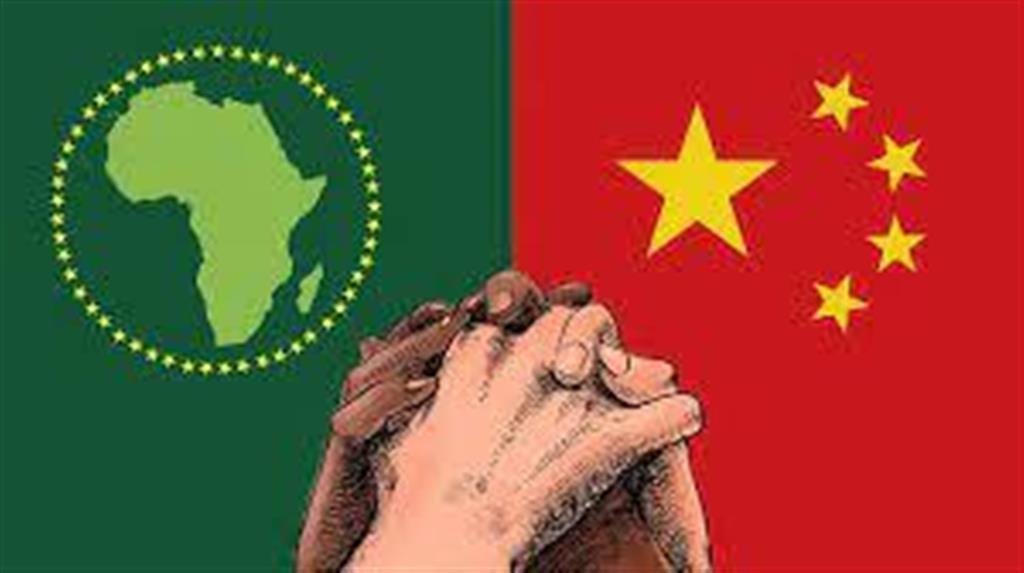Africa-Press – Mauritius. This writer recently came across an article in which China’s development cooperation with countries such as Sri Lanka and Laos was portrayed as a “debt trap”, and China was likened to a modern-day “Shylock” insisting on its pound of flesh.
The article, authored by Mr Kherssie Benjamin and published on a local platform, further suggested that Ghana should be wary of China’s engagements. But how accurate is this narrative?
The writer finds such claims misleading. Take the case of the Hambantota Port in Sri Lanka, often cited by critics. Contrary to suggestions of Chinese seizure, the security and ownership of the port remain 100 per cent under the control of the Sri Lankan government. The financing for the port was provided by China at the request of the Sri Lankan authorities.
As the former Sri Lankan Ambassador to China, Mr PalithaKohona, clarified, approximately 80 per cent of Sri Lanka’s external debt is owed to multilateral financial institutions and private Western investors, with China accounting for only 10 per cent.
In the case of Laos, the China-Laos Interconnection Project is widely acknowledged by Lao authorities as a key strategic venture that is strengthening national energy infrastructure and regional connectivity.
The writer believes Ghana’s own debt structure also helps clarify the reality. According to the Ministry of Finance, Ghana’s total public debt prior to its 2022 appeal to the International Monetary Fund (IMF) stood at US$54.4 billion. Of this, US$28.1 billion – representing 51.7 per cent – was external debt.
Within this, Eurobonds and multilateral debts accounted for US$21.1 billion or 76 per cent of the external debt. Ghana’s official debt to China, by comparison, was only US$1 billion, amounting to just 3.6 per cent of the external debt and 1.8 per cent of total public debt.
Following the onset of Ghana’s debt crisis, China has taken a proactive approach to supporting the country. This writer notes that China serves as co-chair of the Official Creditors Committee, playing an active and constructive role in Ghana’s debt restructuring process.
More broadly across Africa, the real financial pressure, this writer observes, comes not from China but from multilateral institutions and commercial creditors.
Data from the World Bank’s 2024 International Debt Report indicates that 36 per cent of Africa’s external debt is owed to multilateral institutions, while 43 per cent is owed to commercial creditors. Together, they account for nearly four-fifths of Africa’s debt burden.
Regrettably, these multilateral lenders have resisted participating in debt relief under the G20’s Common Framework for Debt Treatment, thereby shifting the burden to bilateral creditors.
They claim to be protecting Africa’s interests, but in reality, their approach risks undermining the continent’s future access to international finance.
According to the UK-based NGO Debt Justice, 35 per cent of Africa’s external debt is held by Western private financial institutions – more than triple China’s share – with these lenders typically charging significantly higher interest rates.
Historically, China’s support for Africa has been extended mostly through grants and interest-free loans. Most of these loans, this writer notes, have already been cancelled.
More recently, to meet Africa’s growing demand for infrastructure and development, China has increased financing cooperation, while also easing the debt burden through initiatives such as the G20 Debt Service Suspension Initiative (DSSI).
China has postponed more debt repayments than any other G20 member.
Research from Johns Hopkins University found that China cancelled US$3.4 billion in debt across Africa between 2000 and 2019 and refinanced a further US$15 billion. Significantly, no African asset has ever been seized by China in the process.
This writer stresses that China does not attach political conditions to loans, has never coerced any African country into borrowing, and has not compelled repayment under threat. No African country, to date, has fallen into debt distress as a direct result of its cooperation with China.
The continent continues to benefit from China’s investments. Chinese companies have constructed over 10,000 kilometres of railways, 100,000 kilometres of roads, 1,000 bridges, 100 ports, and numerous power plants, hospitals, and schools across Africa.
In Ghana, these contributions are evident in projects such as the Ministry of Foreign Affairs buildings, the University of Health and Allied Sciences, the Jamestown Fishing Harbour, the China-Ghana Friendship Hospital (Lekma Hospital), and the National Theatre. In addition, private Chinese investments have established factories, steel plants, airlines, and power infrastructure—creating jobs and promoting economic growth.
This writer invites readers to consider the real motives behind those promoting the “debt trap” narrative. Are they genuinely concerned about Africa’s future, or are they seeking to disrupt China-Africa cooperation and stall the continent’s journey toward industrialisation and economic self-reliance? Such narratives, if left unchallenged, may risk locking Africa into a cycle of underdevelopment.
At the 2024 Beijing Summit of the Forum on China-Africa Cooperation (FOCAC), African leaders reaffirmed their appreciation of the partnership with China and expressed strong interest in expanding cooperation in investment and financing.
On 11 June 2025, China further demonstrated its commitment by announcing zero-tariff treatment for 53 African countries with which it maintains diplomatic relations. The move has been widely welcomed, especially in light of recent tariff barriers imposed by other global powers.
In the view of this writer, the facts speak clearly. China-Africa cooperation has brought tangible benefits. It is, therefore,important that Ghanaian citizens and the media engage with the truth, avoid sensationalism, and support efforts that contribute positively to Africa’s progress.
Source: Ghana News Agency
For More News And Analysis About Mauritius Follow Africa-Press







